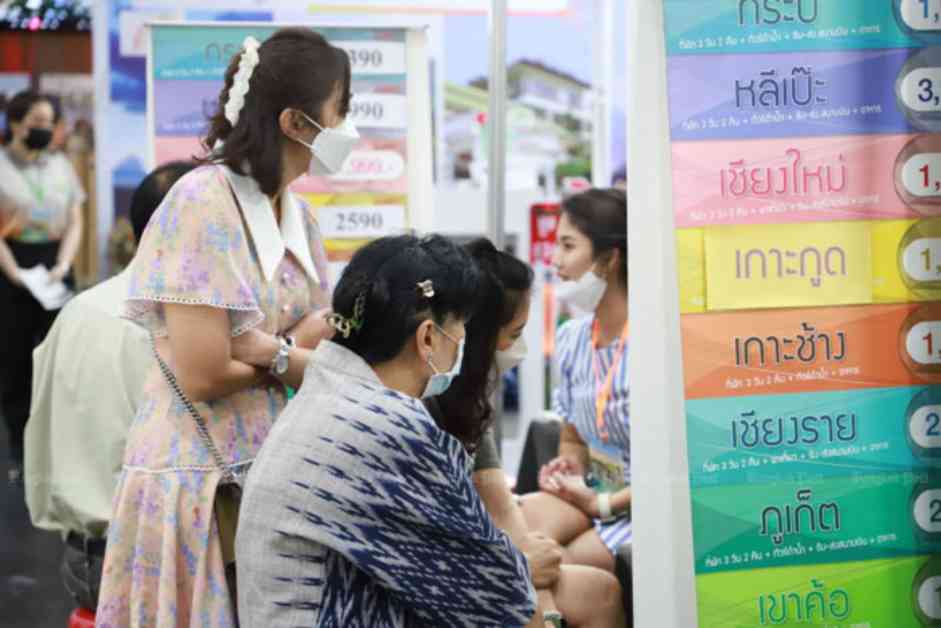Title: The Implications of Minimum Wage Increase on the Hotel Industry: Addressing Concerns and Navigating Challenges
The recent proposal to increase the daily minimum wage to 400 baht for large employers in the hotel industry has sparked a debate among hoteliers regarding its potential impact. While the intention behind the wage hike is to alleviate the cost of living for employees, concerns have been raised about the potential distortions it may create in the job market. Hotel operators fear that the disparity in wages between large and small hotels could lead to an uneven playing field, attracting workers to certain establishments and causing disruptions in the industry.
Challenges Faced by Hoteliers:
Thienprasit Chaiyapatranun, president of the Thai Hotels Association (THA), voiced his concerns about the selective application of the minimum wage increase. He argued that limiting the wage hike to large hotels with more than 200 workers could create an imbalance in the job market. In situations where large and small hotels coexist in the same area with similar living expenses, the higher wage offered by larger establishments could entice employees to switch jobs, leaving smaller hotels at a disadvantage.
Moreover, the current economic climate, particularly in the tourism sector, has not fully recovered from the impact of the global pandemic. Hoteliers emphasize the need for the government to prioritize reducing other expenses and implementing strategies to stimulate demand rather than solely focusing on wage hikes. The sudden increase in labor costs could potentially drive up hotel operating expenses by 10-15%, putting pressure on businesses already grappling with financial challenges.
Addressing the Concerns:
In response to the concerns raised by industry stakeholders, Labour Minister Phiphat Ratchakitprakarn announced the possibility of raising the daily minimum wage to 400 baht nationwide for large employers starting from October 1. While the intention behind the wage hike is noble, hoteliers are calling for a more nuanced approach to address the complexities of the industry.
Thienprasit Chaiyapatranun highlighted the need for a comprehensive assessment of economic indicators such as food prices, inflation rates, and electricity costs to determine an appropriate minimum wage. He emphasized the importance of considering regional disparities in living costs and the varying pace of tourism recovery across different areas. By tailoring the wage increase to reflect these nuances, hoteliers believe that a more equitable and sustainable solution can be achieved.
The Impact of Minimum Wage Increase on Hotel Costs:
Morrakot Kuldilok, president of the eastern chapter of the THA, shed light on the potential repercussions of the minimum wage hike on hotel costs. She estimated that the wage increase could lead to a rise in operating expenses by 10-15%, posing a significant challenge for hotels, particularly those with 100-400 rooms. The requirement to pay the higher wage in companies employing at least 200 workers would have a widespread impact on the industry, affecting not only minimum-wage workers but also front office staff and management.
As hotels are heavily reliant on labor-intensive operations, the inability to offset the increased labor costs by raising room rates could strain their financial viability. Morrakot emphasized the importance of exploring alternative policies to reduce operating expenses, such as maintaining ingredient prices, offering tax incentives, and boosting tourism demand. By diversifying the strategies to alleviate financial burdens, hotels can navigate the challenges posed by the wage hike more effectively.
Proposed Solutions and Way Forward:
In light of the concerns raised by industry stakeholders, it is imperative for the government to consider a holistic approach to address the implications of the minimum wage increase on the hotel industry. Thienprasit Chaiyapatranun advocated for a more nuanced calculation of the minimum wage based on economic indicators, taking into account regional variations in living costs and the unique challenges faced by different segments of the industry.
Moreover, the government should explore alternative measures to support hotels in managing the increased labor costs, such as incentive programs, cost-saving initiatives, and promotional campaigns to boost tourism demand. By fostering collaboration between the public and private sectors, a sustainable and inclusive solution can be devised to ensure the long-term viability of the hotel industry.
Conclusion:
The proposed minimum wage increase for large employers in the hotel industry presents a complex set of challenges that require careful consideration and strategic planning. While the intention behind the wage hike is to improve the livelihoods of employees, hoteliers are rightfully concerned about the potential distortions it may create in the job market and its impact on operating costs.
By engaging in constructive dialogue and exploring innovative solutions, industry stakeholders can work together to mitigate the challenges posed by the wage hike and pave the way for a more sustainable and equitable future for the hotel industry in Thailand. With a collaborative and forward-thinking approach, the industry can navigate through these challenges and emerge stronger and more resilient in the post-pandemic era.




















